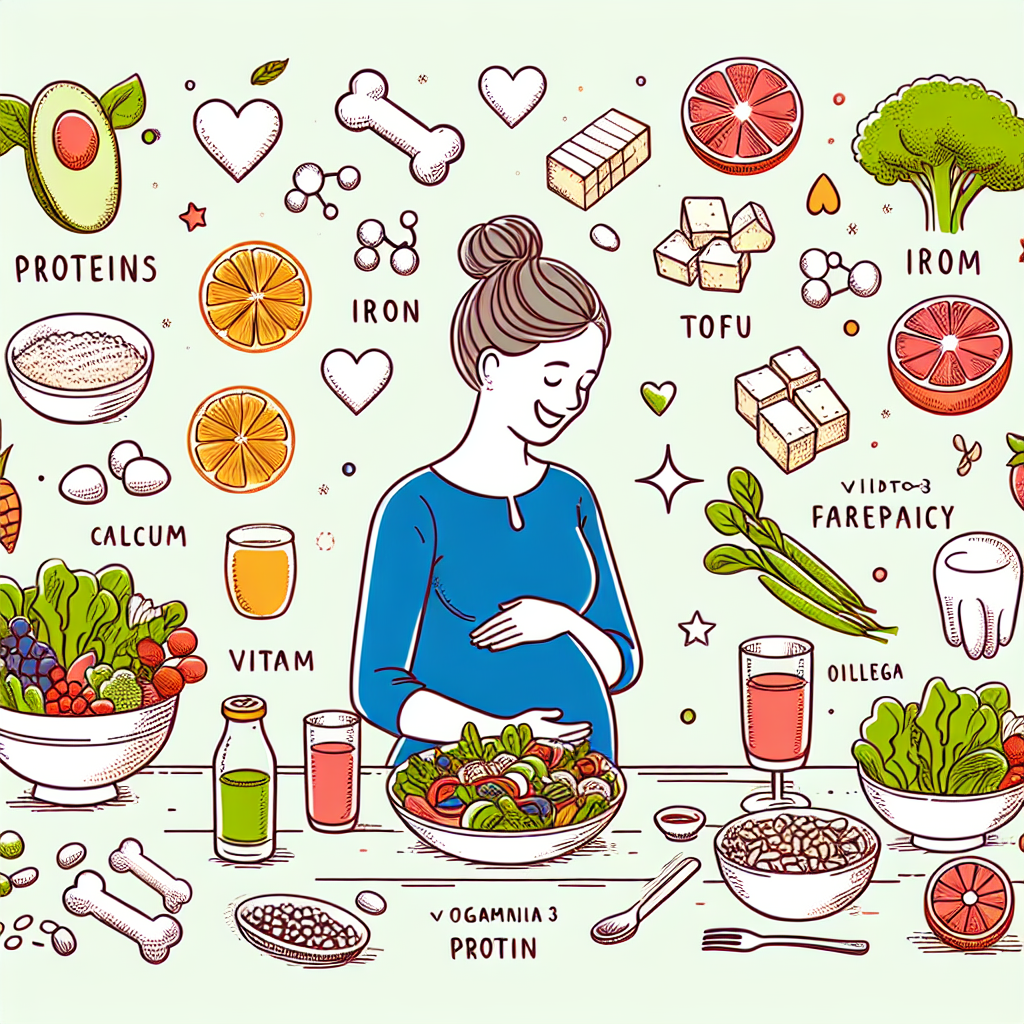Pregnancy and Vegetarianism: Nutrition Guide
Pregnancy is a time of major change in every woman's life, and nutrition plays a crucial role in the healthy development of the baby. If you are a vegetarian or are considering adopting this lifestyle during pregnancy, it is essential to know how to adjust your diet to ensure you get all the nutrients you need.
Motor Development
Your baby's motor development begins right in the womb, and the nutrients he receives through your diet are fundamental. Protein is the building block for muscle and tissue development.
During pregnancy, protein requirements increase considerably, and for a vegetarian diet it is important to identify protein sources that are friendly to your choices. Legumes, nuts, seeds and dairy products (if your diet includes dairy) are excellent choices. It is vital to vary your protein source to ensure you are getting a full spectrum of essential amino acids.
Cognitive Development
Nutrients such as iron, iodine, folic acid and omega-3 are essential for a child's cognitive development. Iron can be found in significant amounts in green leafy vegetables, legumes and fortified cereals. Also, consuming vitamin C in combination with iron-rich foods helps absorption.
Iodine, which contributes to brain and nervous system development, can often be a challenge in a vegetarian diet, but can be found in dairy products and iodized salt. Supplementation, in this case, may be necessary after consulting the doctor.
Folic acid is critical for neural tube development and preventing birth defects. It is found in green leafy vegetables, citrus fruits and fortified cereals. Folic acid supplements are often recommended in pregnancy.
Omega-3, especially DHA, is essential for brain and eye development. It is mainly found in fish, but for vegetarians there are sources such as seaweed and seaweed supplements.
Language development
Language development begins in utero and nutrients such as B vitamins, especially B12, play a critical role. Vitamin B12 is a nutrient that occurs naturally almost exclusively in animal products, including meat, eggs and dairy products. For strict vegetarians, B12 supplements or fortified foods are a must.
Emotional Development
A stable emotional environment is important during pregnancy. Nutrients such as calcium and magnesium can help maintain good emotional health. Calcium, vital for bones and teeth, is found in dairy products and, for non-dairy eaters, in vegetables such as broccoli and kale.
Magnesium contributes to muscle relaxation and stress management and can be found in nuts, seeds and legumes.
Conclusion
For you and your baby to be healthy, it is important to follow a balanced and varied diet, whether you are vegetarian or not. This diet should include a wide range of fruits, vegetables, whole grains, legumes, nuts and seeds, and, if the diet allows, dairy products and eggs.
Supplements may be necessary to ensure an adequate supply of essential vitamins and minerals, but these decisions should be made with the advice of a physician or nutritionist. For more information and advice on nutrition during pregnancy, subscribe to our newsletter and explore other sections of our store to maintain your health and well-being during this unique time in life.
With careful planning and the right knowledge, pregnancy and vegetarianism can go hand in hand to ensure a healthy start for your baby.














































































































































